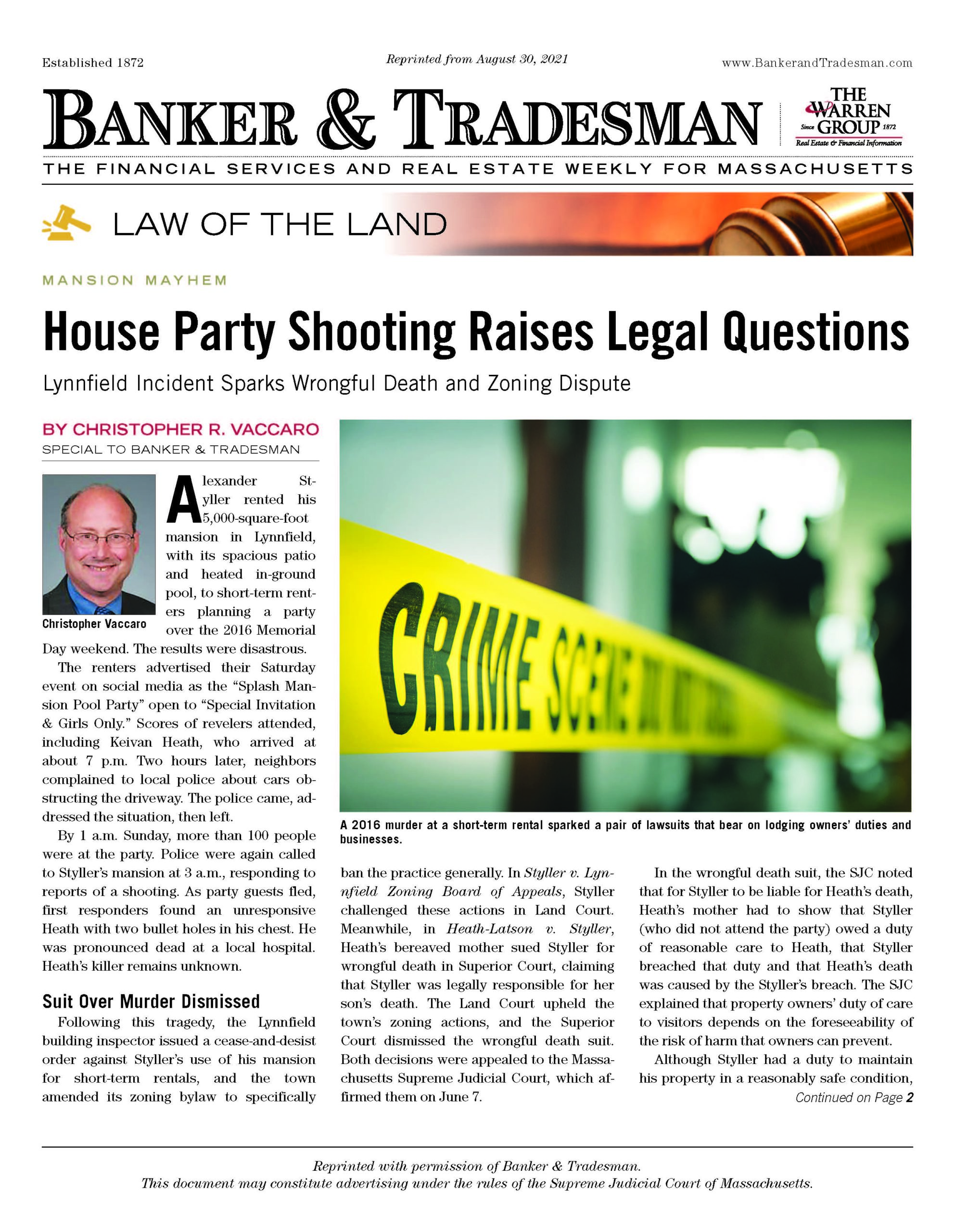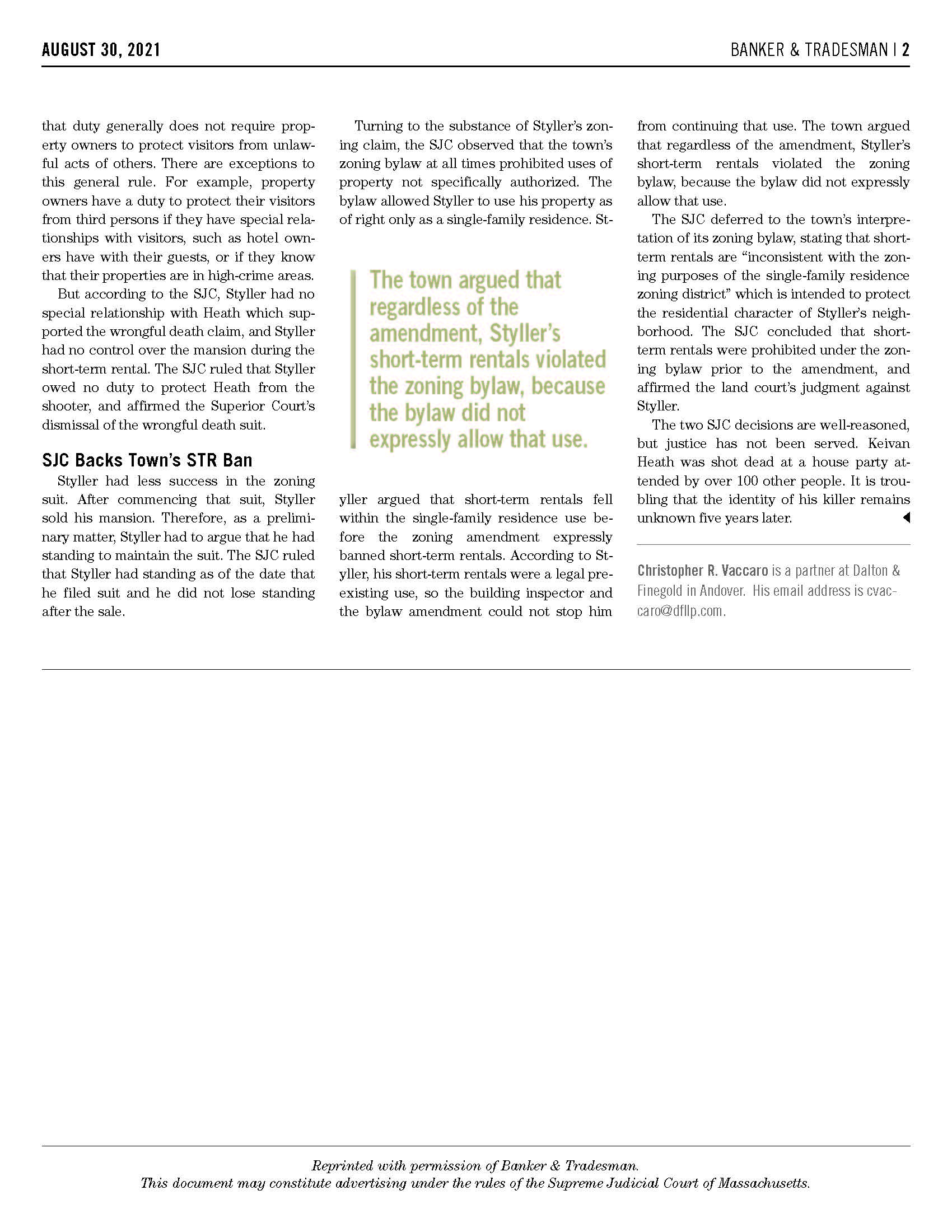 Decides Battle of Control for Worcester Condos
Decides Battle of Control for Worcester Condos
By Christopher R. Vaccaro
Special to Banker & Tradesman
The Massachusetts Appeals Court ruled last month in Kettle Brook Lofts LLC v. Specht that a condominium developer could not unilaterally extend its phasing rights beyond a seven-year period imposed in the property’s condominium master deed. The court also ruled that lenders holding mortgages recorded before the master deed did not subordinate their mortgages to the master deed when they partially released their mortgages on units sold.
Kettle Brook Lofts LLC acquired property in Worcester to develop a condominium project, using financing from Haymarket Capital LLC and Commerce Bank and Trust Co. The developer recorded a master deed in 2008, which was junior to the lenders’ mortgages. The master deed allowed construction of up to 109 units in phases over a seven-year period. It also allowed the developer, while it owned units or during the seven-year period, to unilaterally amend the master deed if the amendment did not substantially impair unit owners’ rights.
The developer built 53 units in three phases, selling 48 units and retaining five. The lenders released the sold units from their mortgages, but not the five unsold units. Years passed without the developer adding more phases.

with development plans, but lost.
In 2015, one day before the phasing rights were scheduled to expire, the developer recorded amendments to the master deed, extending its phasing rights for seven more years, expanding its control over the condominium, and adding 56 partially constructed but uninhabitable units to the condominium. The developer then claimed to own more than 75 percent of the condominium’s beneficial interests and removed the condominium association’s trustees, appointing itself as their successor.
Dispute over Future Control
To further this scheme, the developer filed suit in Superior Court to prevent the trustees and unit owners from interfering with its development plans and control of the condominium. The trustees filed a separate suit in Land Court to invalidate the developer’s actions. The trustees also sought a declaration that the lenders had released their interests in the condominium’s common areas and subordinated their mortgages to the master deed when they partially released sold units.
The developer’s lawsuit was transferred to the Land Court, which heard both cases together. The Land Court ruled in favor of the trustees, declaring that the developer’s phasing rights had expired, its amendments to the master deed were invalid and the lenders’ mortgages were subordinate to the master deed. The developer and lenders appealed.
The Appeals Court affirmed the Land Court’s decision regarding the developer’s phasing rights and master deed amendments but modified it as to the lenders’ mortgage priorities. As to the phasing rights, the Appeals Court examined the Condominium Act and language in the master deed. The Condominium Act states that when buyers re-cord unit deeds, they effectively consent to subsequent phases and reductions of their undivided interests – but only if the master deed, when the unit deeds were recorded, allowed additional phases and an accurate determination of the resulting change to each unit’s undivided interest.
Court: Statute Protects Buyers
The Appeals Court construed this statute as protecting unit buyers, so when they purchase units and record their deeds, they can rely on limits on phasing rights in the master deeds at the time of recording, without concern that developers will later expand those rights to the buyers’ detriment. The court found that in this case, the developer’s unilateral expansion of its phasing rights did not comply with the statute.
The Appeals Court also determined that the master deed’s general provision allowing amendments by the developer did not validate the developer’s amendments, because adding units after seven years would decrease the benefits associated with the existing units. The court ruled that the developer’s amendments did not comply with the Condominium Act or the master deed.
Having upheld the Land Court’s decision invalidating the developer’s actions, the Appeals Court turned to whether the lenders’ mortgages were subordinate to the master deed. The court noted that although the lenders had released their mortgages on 48 units, they still held mortgages on the developer’s five units. Therefore, the mortgages remained superior to the master deed as to those five units and their appurtenant interests in the common areas. The court amended the Land Court’s judgment to reflect this ruling. The practical consequences of this amendment are open to debate and will likely result in further litigation.
The Appeals Court’s ruling shows that developers must play by the rules of their original master deeds when exercising phasing rights. It also underscores the importance of requiring lenders that finance condominium construction to subordinate their mortgages to subsequently recorded master deeds.
Download the article as seen in Banker & Tradesman on November 29, 2021. Learn more about Christopher R. Vaccaro.

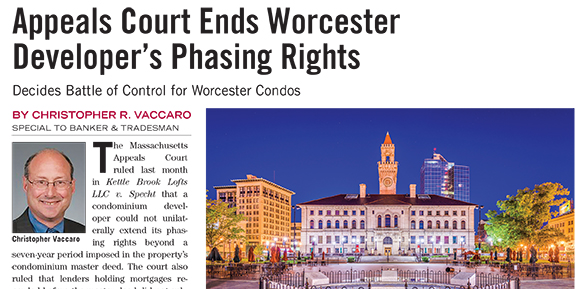
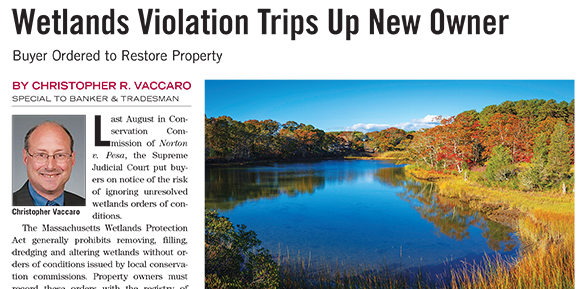

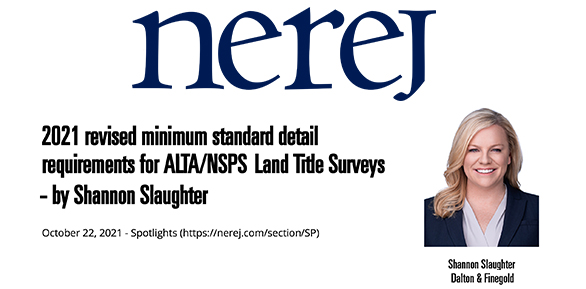
 Check out this article written by
Check out this article written by 

 Dalton & Finegold, LLP is pleased to announce that two of our attorneys from the Andover office have been named in the 2021 MA Super Lawyers list by Super Lawyers Magazine.
Dalton & Finegold, LLP is pleased to announce that two of our attorneys from the Andover office have been named in the 2021 MA Super Lawyers list by Super Lawyers Magazine. 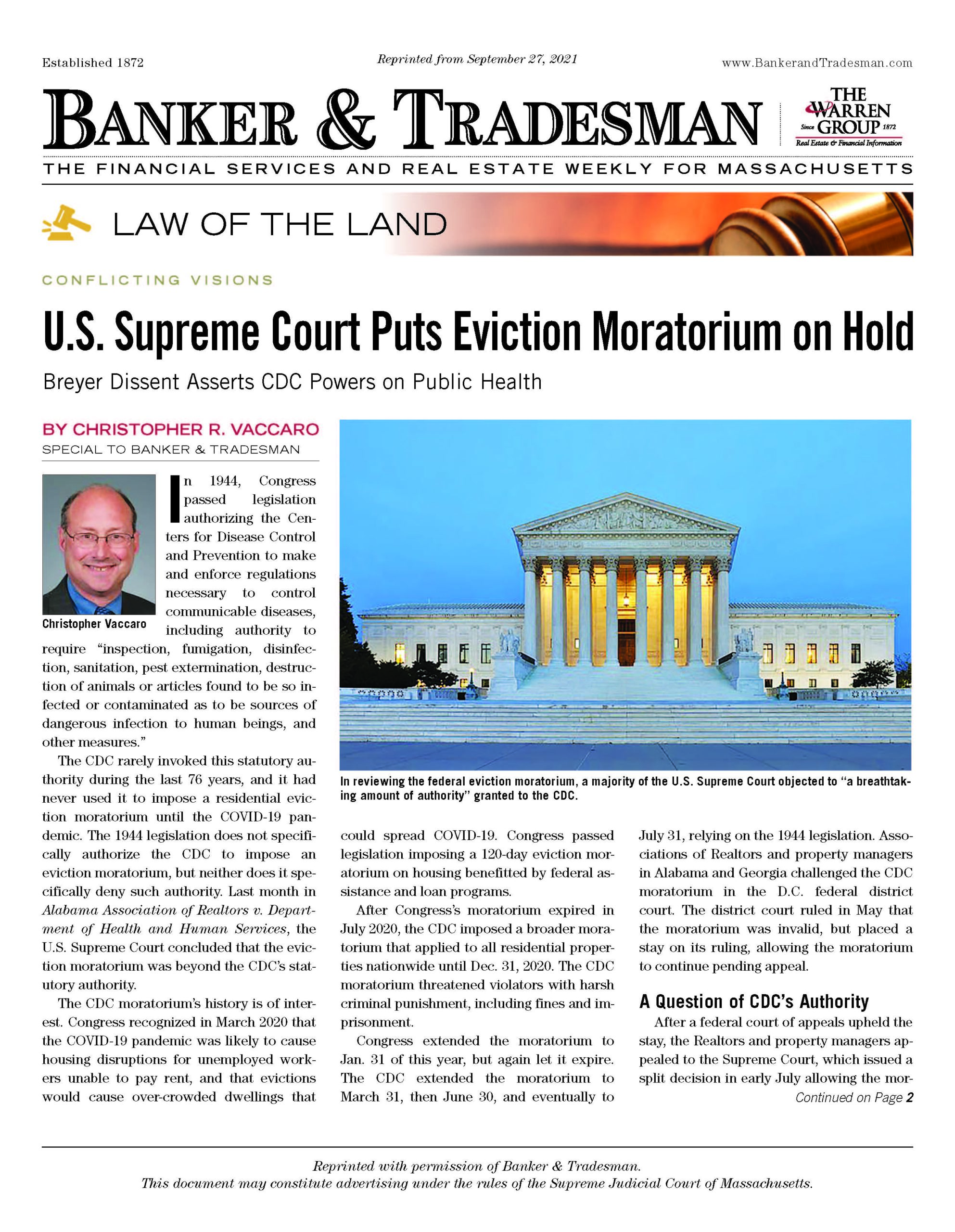
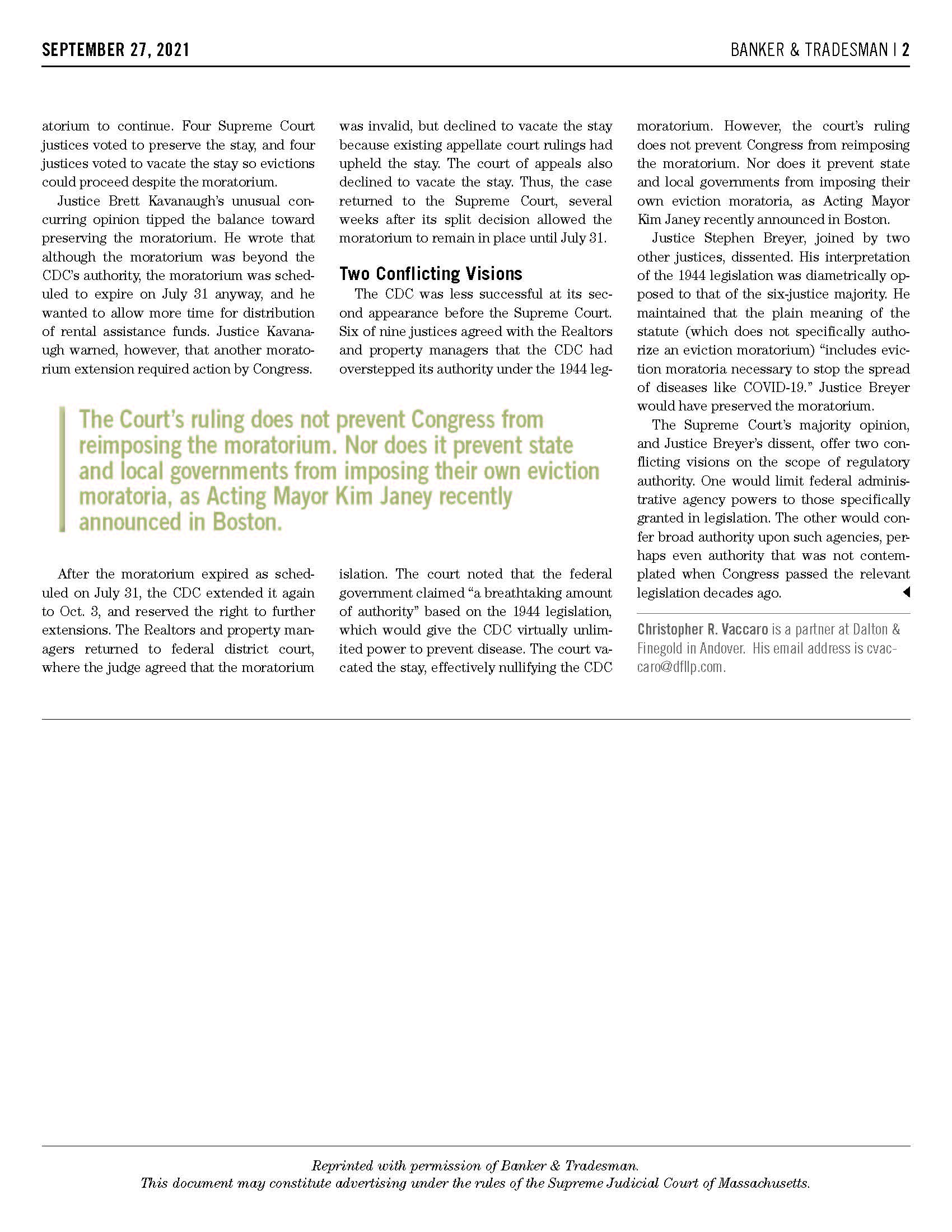 Word
Word